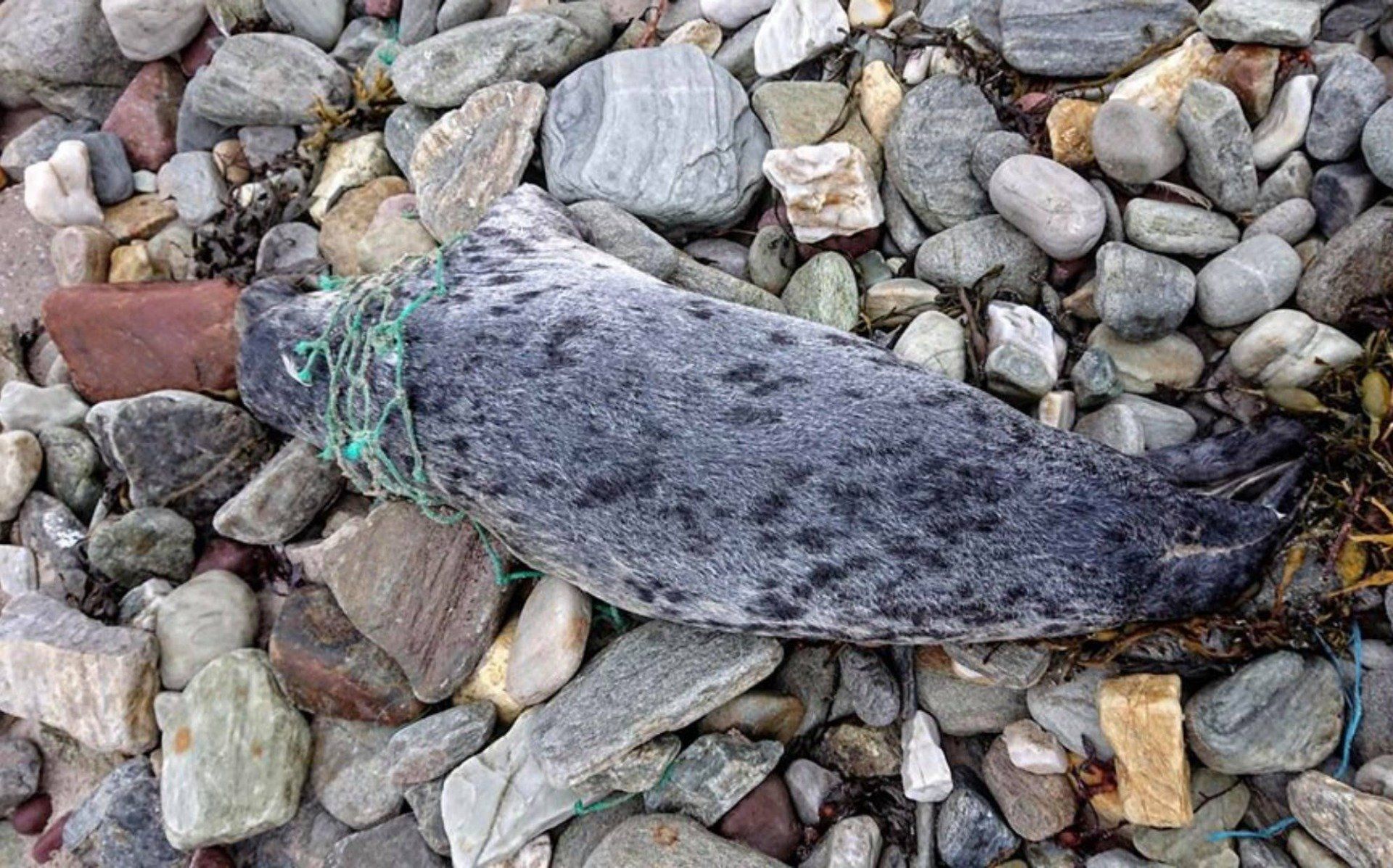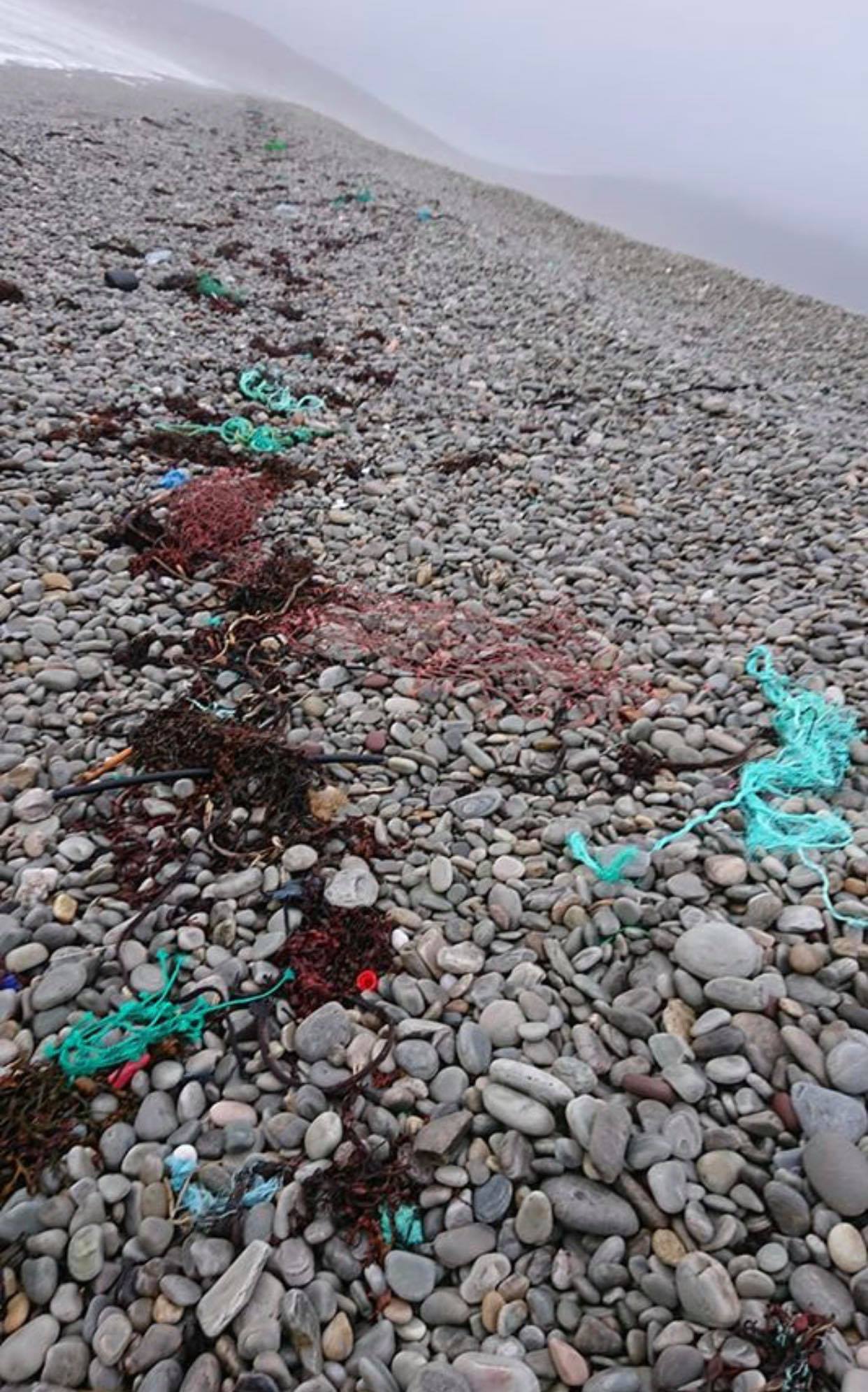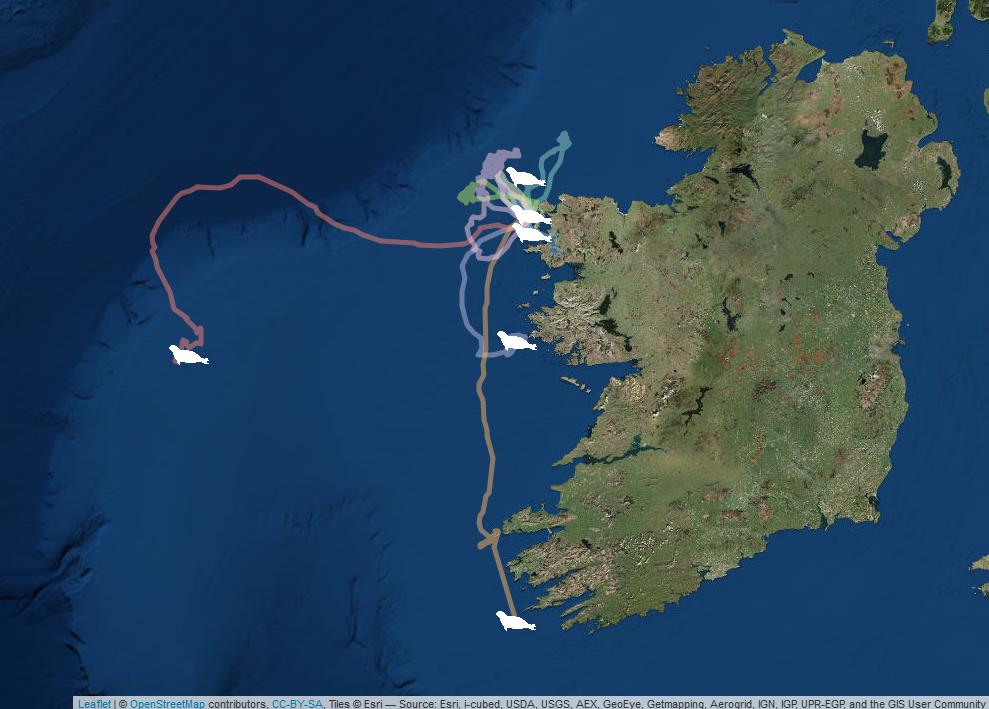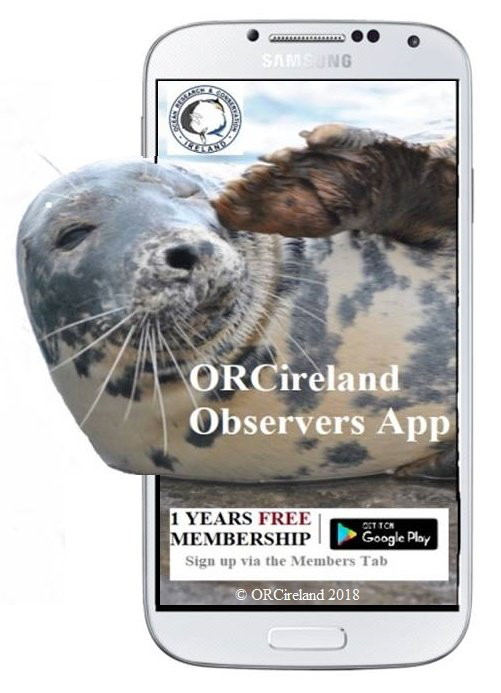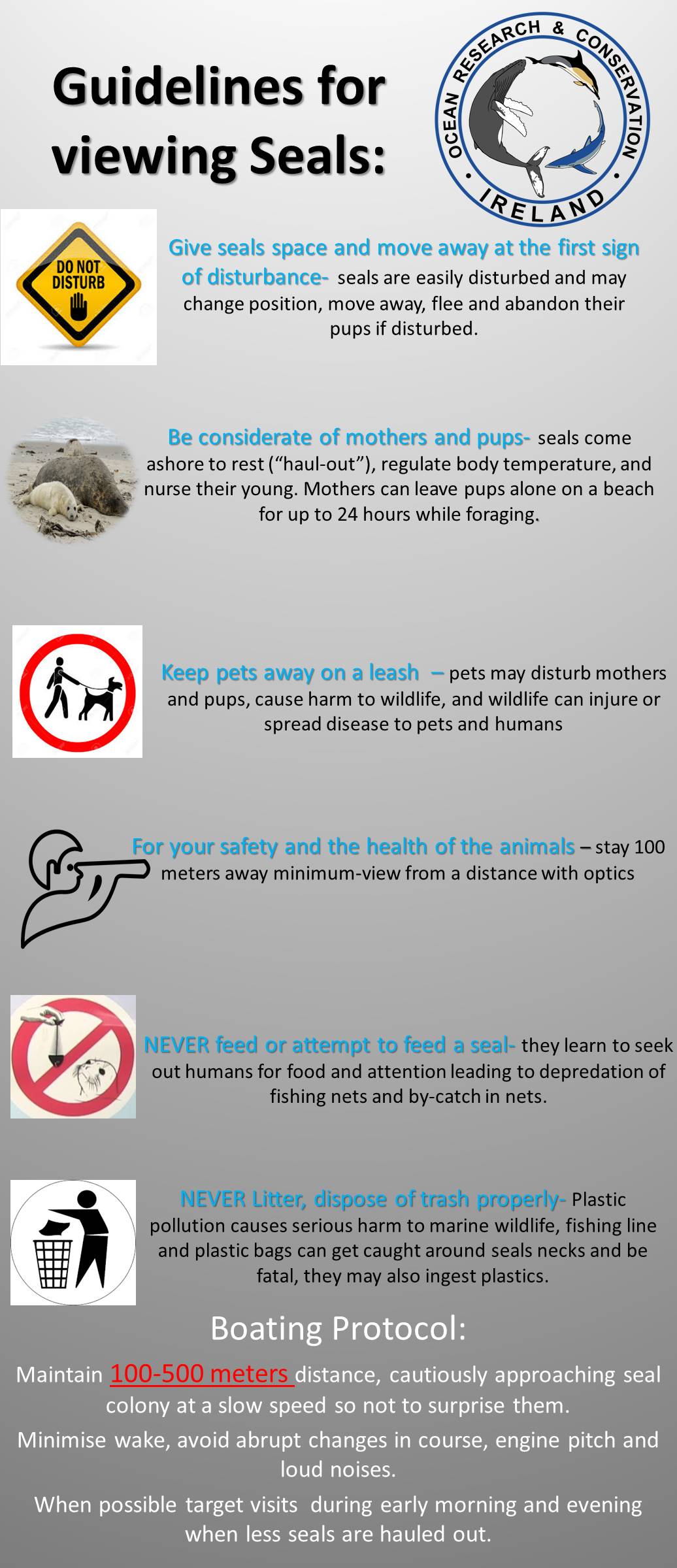Irish Scientists Try to Reduce Seal By-catch and De-predation!
Small-scale coastal fisheries are important for economic and social communities around the Irish coastline. In recent decades, an increasing population of Atlantic grey seals have resulted in growing conflicts between seals and fishermen. Studies have shown grey seals can cause significant damage to fishing gear and an increase in catch loss. In order to cope with increasing seal populations and to maintain a sustainable coastal fishery, conservation measures are needed.
Grey seal ( Halichoerus grypus ) reported entangled on Achill Island, Co. Mayo. 2-1-2020. ©Ina Krueger/ Observer.
On the 2nd of January 2020, naturalist and marine wildlife observer Ina Krueger reported an entangled grey seal on Achill Island, Co. Mayo to Ocean Research & Conservation's Observers App. While Achill Island is strife with marine debris and abandoned fishing gear, with recent calls for culls of seals along the west coasts of Ireland ( SIGN THE PETITION HERE), we decided to delve deeper into some possible solutions to the problem of seal depredation and by-catch in Irish waters. We are also looking for a local group to volunteer to conduct regular beach cleans of the area.
Keel Beach, Achill Island, Co. Mayo. ©Ina Krueger/ Observer.
In 2019, researchers from Marine Renewable Energy Ireland (MaREI) and University College Cork's (UCC), School of Biological, Earth and Environmental Sciences (BEES), and the University of St. Andrews - Sea Mammal Research Unit (SMRU) satellite tagged 10 grey seals in a study to determine seal-fishery conflicts.
Earlier this month, researchers from #MaREI , @uccBEES and @_SMRU_ fitted 10 grey seals from the Inishkea Islands with GPS tracking technology, as part of a study on seal-fishery interactions. This map shows how far these incredible animals have travelled! pic.twitter.com/TCUPw0yn62
— MaREI (@MaREIcentre) April 24, 2019
The team is led by UCC PhD student Cian Luck, who hopes to answer key questions to address the conflicts with seals and fishermen in Irish waters: - how seals are getting into fishing nets?, how often they are getting caught?, and what can be done to prevent this?
Working closely with fishermen, Cian and the team are looking at key factors such as where the seals are travelling to in relation to fishing boats, and where the seals may be at risk of getting caught in nets. The next step is to feed that information back to relevant authorities – with whom they are in frequent dialogue – in order to help conservation efforts and have maximum research impact.
“The data I collected has shown that fishing boats that fish very close to major seal colonies are much more likely to catch seals. That seems obvious, but it’s quite useful to know because then we can start making some really clear management decisions, like excluding fishing up to a certain distance in an area where there are concerns about seal by-catch,” explains Cian.
“It also seems that when the water clarity goes from very clear to very murky, the seals simply can’t see the nets and are more likely to get caught themselves, and swim into them by accident. So, if we could come up with a way that would make the nets more visible to the seals, then that might be a very quick and easy way of reducing seal bycatch.”
Grey seals and to a lesser extent harbour seals ( Phoca vitulina
) have been observed as by-catch principally in large mesh tangle nets targeting crawfish ( Palinurus elephas
) along the south-west coasts of Ireland. Mitigation measures for by-catch of unwanted species such as seals include improved net visibility, use of smaller mesh size and reintroduction of pots (Cosgrove et al
., 2016).
If you encounter a seal species on Irish shores or at sea, please take a photo from a distance of at least 100 meters and make a report in the Observers App so we can assess the species, age, sex, health status and keep a record of it .
NEVER approach a seal or get close enough for it to move away or to produce threatening vocalisations.
Please remember to always follow Best Practice Guidelines for Viewing Seals in the Wild.
References
:
Cosgrove, R., Gosch, M., Reid, D., Sheridan, M., Chopin, N., Jessopp, M, Cronin, M., (2016). Seal bycatch in gillnet and entangling net fisheries in Irish waters. Fisheries Research, Vol
183
, November 2016, Pages 192-199
SHARE THIS ARTICLE






